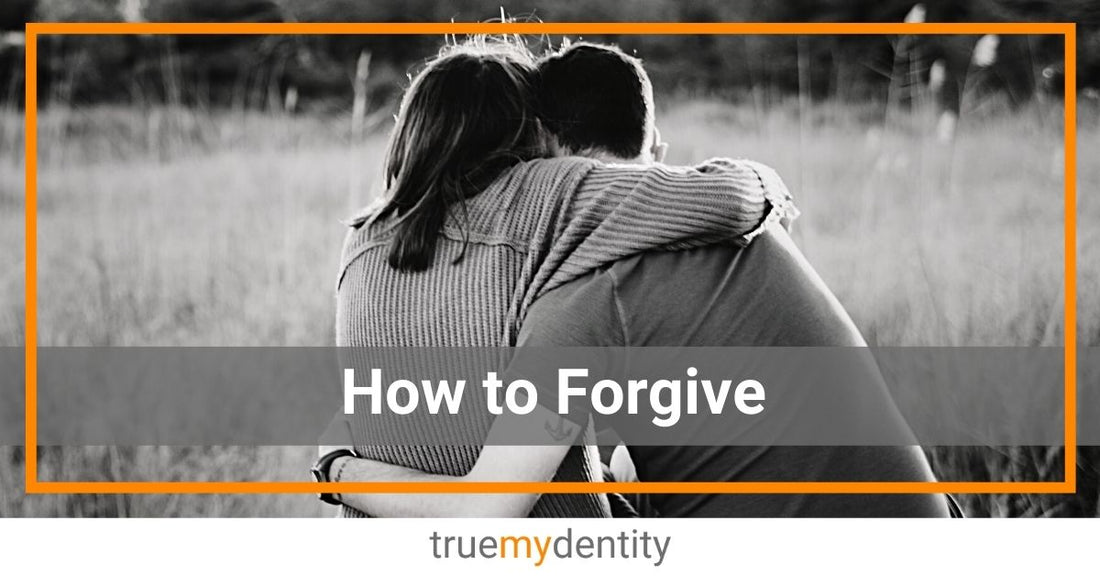Discover How to Forgive Someone and Find Peace in Your Heart
Discover How to Forgive Someone and Find Peace in Your Heart
Blog Article
Understanding the Significance of Forgiveness in Healing Relationships
Mercy is often watched as an easy act of allowing go, yet its value in recovery connections prolongs much beyond plain absolution. What stays to be revealed is the extensive effect forgiveness can have on private growth and communal consistency.
The Definition of Forgiveness
Although forgiveness is commonly regarded as a simple act of releasing, its interpretation incorporates an intricate interaction of emotional and psychological procedures. At its core, forgiveness is the aware choice to release sensations of animosity or revenge towards a private or team that has triggered injury. This procedure is not merely regarding absolving the culprit; rather, it involves an extensive psychological improvement that can lead to individual development and healing.
Forgiveness is multifaceted, commonly characterized by an individual's interior struggle to integrate their discomfort with the wish for tranquility. It needs identifying the misdoings devoted, processing the linked feelings, and ultimately making an option to progress without the worry of bitterness. This choice typically entails a cognitive shift, where one reframes their understanding of the transgression and the perpetrator, enabling compassion and understanding to emerge.
Importantly, mercy does not imply excusing the behavior or failing to remember the offense; it is a purposeful act that prioritizes psychological well-being. By specifying mercy in this way, we can value its duty in facilitating healthier partnerships and promoting emotional durability, setting the phase for much deeper exploration right into its benefits.
Emotional Benefits of Forgiveness
Forgiveness provides considerable emotional benefits that can greatly influence a person's psychological health and total wellness. When a person chooses to forgive, they actively launch sensations of animosity, anger, and rage, which can otherwise create a hefty psychological worry. This launch commonly causes a reduction in stress and anxiety and anxiousness, promoting a feeling of tranquility and emotional stability.
In addition, mercy fosters a boosted capacity for compassion and empathy. By understanding the viewpoint of the offender, people can grow a deeper psychological strength, which improves their capability to deal with future difficulties. This procedure not just boosts emotional policy yet additionally adds to an extra positive outlook on life.
In addition, forgiving others can strengthen one's self-esteem and self-regard. It allows people to reclaim their individual power, damaging devoid of the unfavorable cycles of victimhood - The importance of forgiveness. This newly found empowerment can result in much healthier emotional reactions and stronger interpersonal partnerships
Forgiveness vs. Reconciliation
The distinction between forgiveness and settlement is vital in understanding the dynamics of recovery partnerships. Forgiveness is an interior procedure where an individual selects to allow go of resentment and unfavorable sensations in the direction of somebody that has actually caused harm. It is mainly a personal journey, concentrated on psychological launch and self-healing, enabling one to move on without lugging the worry of past complaints.
In comparison, reconciliation entails restoring and restoring the partnership to a state of trust fund and mutual respect. This process often needs open interaction, active involvement from both events, and a commitment to dealing with the underlying issues that caused the conflict. While mercy can take place independently, reconciliation requires the determination of both individuals to participate in discussion and work toward a common understanding.
It is very important to keep in mind that mercy does not always result in reconciliation. A person may forgive another without choosing to bring back the relationship, specifically if count on has been irrevocably harmed or if the connection is deemed unhealthy. Recognizing this difference allows people Steps to forgive to browse their feelings effectively and make educated choices concerning their partnerships.
Actions to Grow Mercy
Cultivating mercy is a calculated procedure that includes numerous key actions intended at assisting in emotional healing. The initial step is acknowledging the discomfort triggered by the crime. Acknowledging one's sensations is vital, as it allows individuals to process their emotions genuinely.
Next, reviewing the occurrence and comprehending its impact can supply clarity. This reflection should include examining the motivations behind the offender's actions and identifying that everyone is fallible.
The 3rd action includes making an aware choice to forgive. This decision is important, as it represents a readiness to allow go of resentment and relocate onward.
Consequently, expressing sensations in a useful fashion can be valuable - The importance of forgiveness. Whether with journaling, speaking with a relied on pal, or seeking treatment, articulation of emotions can assist in the forgiveness journey
Real-Life Instances of Mercy

In one more instance, a close-knit team of good friends encountered a significant break after one member unintentionally shared a personal secret. Rather of harboring resentment, the impacted friend determined to forgive, understanding the significance of valuing the relationship over the mistake. This choice urged open dialogue and inevitably reinforced their link.

Final Thought
To conclude, mercy plays a pivotal function in the recovery of connections by assisting in the launch of negative emotions and promoting compassion. By comparing mercy and settlement, individuals can involve in a constructive procedure that enhances emotional health. Carrying out actions to grow forgiveness can lead to transformative end results, reinforcing links and advertising an encouraging environment. Inevitably, the technique of forgiveness serves as a stimulant for personal development and the nurturing of healthier social dynamics.

Report this page